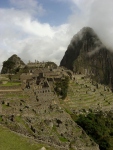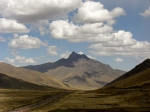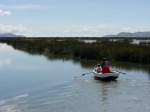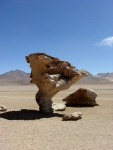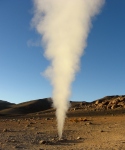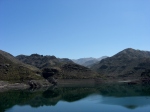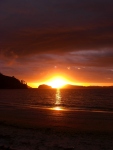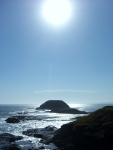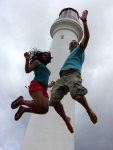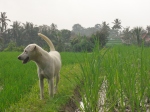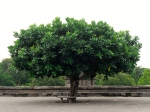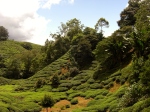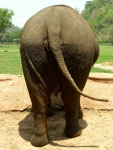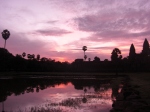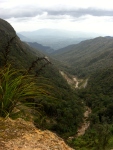 R: The White Whale and I have become great friends on this trip; and although I finished reading Moby Dick nearly four months ago, I thought it a fitting book with which to end my literary odyssey.
R: The White Whale and I have become great friends on this trip; and although I finished reading Moby Dick nearly four months ago, I thought it a fitting book with which to end my literary odyssey.
I’m not a great reader on the bus, suffering as I do from text-induced motion sickness. Planes and trains are no problem, but buses (and Fijian boats) are necessarily prose-free areas for me. With this in mind I left the UK with an unabridged audiobook of Melville’s classic.
Through bursts of Frank Muller diction the whale has followed me along Brazil’s Costa Verde, through Peru’s Sacred Valley, around Lake Titicaca, across the Altiplano, down the Chilean coast and twice over the Andes. And it has helped break the monotony of overnight rides from Melbourne to Sydney, Sydney to Byron Bay and Bali to Java. In Singapore Moby Dick disappeared amid the gloom – the backlight of my iPhone packed in – before resurfacing in Thailand, where, in Kindle format, I eventually made it to the book’s climatic final scene.
So what of the book itself? At first Melville’s style – long sentences, archaic language and florid descriptions – is a little difficult to penetrate, but as the mist clears you are soon pitched headlong into a salty, oily world of whales, whaling and harpooners.
But Moby Dick is as much famed for its verbosity as its virtuosity, and there is no denying that Melville’s prolixity can often frustrate and even defeat the pluckiest of readers. Arguably, nearly half of the one hundred and thirty-three chapters do not concern the main narrative, exploring instead the history, science and culture of whales and whaling. In fact, a more appropriate title for the book may have been Everything You Always Wanted to Know About Whales But Were Afraid to Ask.
But the hardy reader is rewarded, as the accumulative effect of each digression serves to both build suspense and enhance the central metaphor of the whale. I say central metaphor, as there are probably as many meanings as there are chapters in the book. But what does the White Whale itself symbolise? God, nature, immortality? And what is the significance of Captain Ahab’s monomaniacal quest? Sin, hubris, or just plain old-fashioned revenge? Arguably, the key meditation of the book concerns the limits of man’s knowledge: that no matter how many ‘facts’ we gather about the world – about nature, about life, about ourselves – there are some things which remain forever unknowable.
Elsewhere I have lamented the attempts of others to write The Great American Novel; and it is from Melville that any aspirants must wrestle this title. In Moby Dick Melville does not speak of America but of the world, not of a whale but of life. This is why he takes his rightful place among the literary heroes of this trip.
But it is in the metaphorical richness that Moby Dick achieves its greatness. Its layers are so numerous, its weft and warp so tightly packed, that the reader is free to invest his or her own meaning. For me, Moby Dick is a metaphor for both the limits and the glories of travel. And I will leave Ishmael with the last word on both.
On the limits:
‘Round the world! There is much in that sound to inspire proud feelings; but whereto does all that circumnavigation conduct? Only through numberless perils to the very point whence we started, where those that we left behind secure, were all the time before us.’
And the glories:
‘How vain and foolish for timid untravelled man to try to comprehend aright this wondrous whale, by merely poring over his dead attenuated skeleton, stretched in this peaceful wood. No. Only in the heart of quickest perils; only when within the eddyings of his angry flukes; only on the profound unbounded sea, can the fully invested whale be truly livingly found out.’



